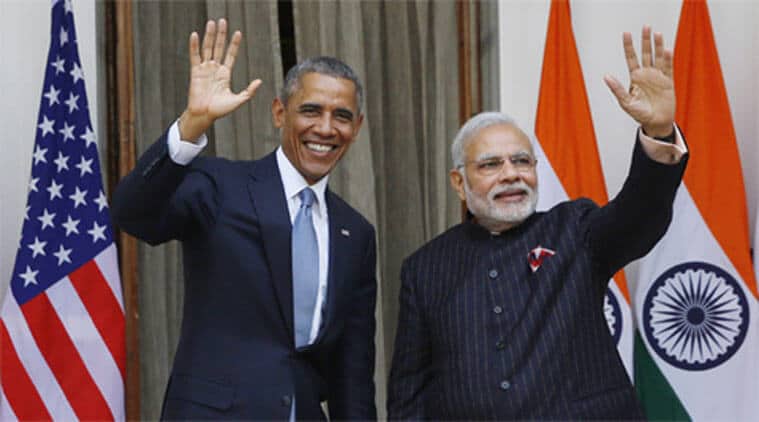Synopsis of International Relations
The study of international relations focuses on the relationships and interactions between nations in the global arena. It explores the dynamics of power, politics, diplomacy, and cooperation among countries. International relations encompass a wide range of topics, including international politics, organizations, diplomacy, security, and globalization.
International politics refers to the complex interplay of interests, power struggles, and decision-making processes among nations. It examines how states pursue their national interests, engage in negotiations, form alliances, and resolve conflicts. The field of international politics analyzes the role of political ideologies, economic systems, and cultural factors in shaping the behavior of states in the international system.
International organizations play a crucial role in facilitating cooperation and coordination among nations. Examples of such organizations include the United Nations (UN), World Trade Organization (WTO), International Monetary Fund (IMF), and regional bodies like the European Union (EU) and African Union (AU). These organizations provide platforms for countries to discuss and address global challenges, promote economic cooperation, and coordinate policies on various issues such as human rights, trade, and climate change.
Diplomacy is an essential tool in international relations. It involves the art of negotiation, communication, and relationship-building between states. Diplomats represent their countries' interests, engage in dialogue, and seek peaceful resolutions to conflicts. Diplomatic efforts can take various forms, including bilateral talks, multilateral negotiations, and track II diplomacy involving non-governmental actors.
Global security is a significant concern in international relations. It encompasses efforts to maintain peace, prevent conflicts, and address security threats on a global scale. Issues such as terrorism, nuclear proliferation, cyber warfare, and regional conflicts require international cooperation and collective security measures. Countries collaborate through intelligence sharing, military alliances, peacekeeping missions, and arms control agreements to safeguard global security.
Globalization has transformed the landscape of international relations. It refers to the increasing interconnectedness and interdependence among nations in terms of trade, finance, technology, and culture. Globalization has facilitated the exchange of goods, ideas, and information across borders, but it has also created new challenges such as inequality, cultural clashes, and environmental degradation. International relations scholars examine the impacts of globalization on states, societies, and global governance.
International relations is a multidisciplinary field that analyzes the interactions, dynamics, and challenges faced by nations in the global context. It encompasses the study of international politics, organizations, diplomacy, security, and globalization. Understanding international relations is crucial for addressing global issues, promoting cooperation, and maintaining peace and stability in an interconnected world.
The Significance of International Politics
International politics plays a significant role in shaping the dynamics and relationships between nations on the global stage. It refers to the study of power, decision-making, and policies that influence the behavior of states in the international system. Understanding the significance of international politics is crucial for comprehending the complexities of international relations and the pursuit of national interests by countries.
One of the key aspects of international politics is the competition for power among nations. States strive to maximize their influence, resources, and security in the global arena. They engage in various political strategies, such as forming alliances, engaging in diplomacy, and using military force, to advance their interests and protect their sovereignty. The distribution of power among states, often referred to as power dynamics, shapes the behavior and interactions between countries.
International politics also encompasses the decision-making processes within states and how they shape foreign policy. Governments assess their national interests and formulate policies that align with their objectives. These policies may involve economic, political, or security considerations and can influence a country's interactions with other nations. Decision-making in international politics involves weighing various factors, including domestic concerns, international norms, and the actions and interests of other states.
The study of international politics helps identify and analyze patterns of cooperation and conflict between nations. It examines the causes of disputes, the negotiation of agreements, and the resolution of conflicts through diplomatic means. International politics also explores the role of international institutions, such as the United Nations, in promoting cooperation, managing crises, and addressing global challenges.
International politics is not limited to the actions of states alone. Non-state actors, including international organizations, non-governmental organizations (NGOs), and multinational corporations, also participate in the global political arena. These actors influence decision-making processes, advocate for specific issues, and contribute to shaping international norms and policies.
The significance of international politics lies in its impact on global stability, security, and prosperity. Effective management of international politics can lead to peaceful resolutions of conflicts, cooperation on global issues, and the promotion of human rights and development. By studying international politics, policymakers and scholars gain insights into the motivations, strategies, and behaviors of states, which can inform the formulation of foreign policies and international cooperation initiatives.
International politics is of great importance in understanding the complexities of international relations. It sheds light on the pursuit of power, decision-making processes, patterns of cooperation and conflict, and the role of various actors in the global arena. By examining international politics, we gain valuable insights into the dynamics between nations and can work towards fostering peace, stability, and mutual understanding among countries.
Strengthening International Organizations
International organizations, such as the United Nations (UN), play a pivotal role in facilitating dialogue, cooperation, and collective decision-making among nations. These organizations provide a platform for countries to come together, discuss global issues, and collaborate on solutions. To improve international relations, it is vital to strengthen these organizations by enhancing their effectiveness, increasing representation, and promoting transparency.
Advancing Global Diplomacy
Global diplomacy is a key aspect of improving international relations. Diplomatic efforts aim to build bridges, facilitate dialogue, and foster understanding between nations. Through diplomatic channels, countries can engage in negotiations, establish treaties, and resolve conflicts peacefully. It is essential to invest in diplomatic relations, promote cultural exchanges, and encourage diplomatic training to enhance the art of diplomacy and improve international relations.
Enhancing Global Security
Global security is a critical component of improving international relations. Countries must work together to address common security challenges such as terrorism, cyber threats, and the proliferation of weapons of mass destruction. Cooperation in intelligence sharing, joint military exercises, and the development of international legal frameworks can enhance global security and promote trust among nations.










 English (US) ·
English (US) ·